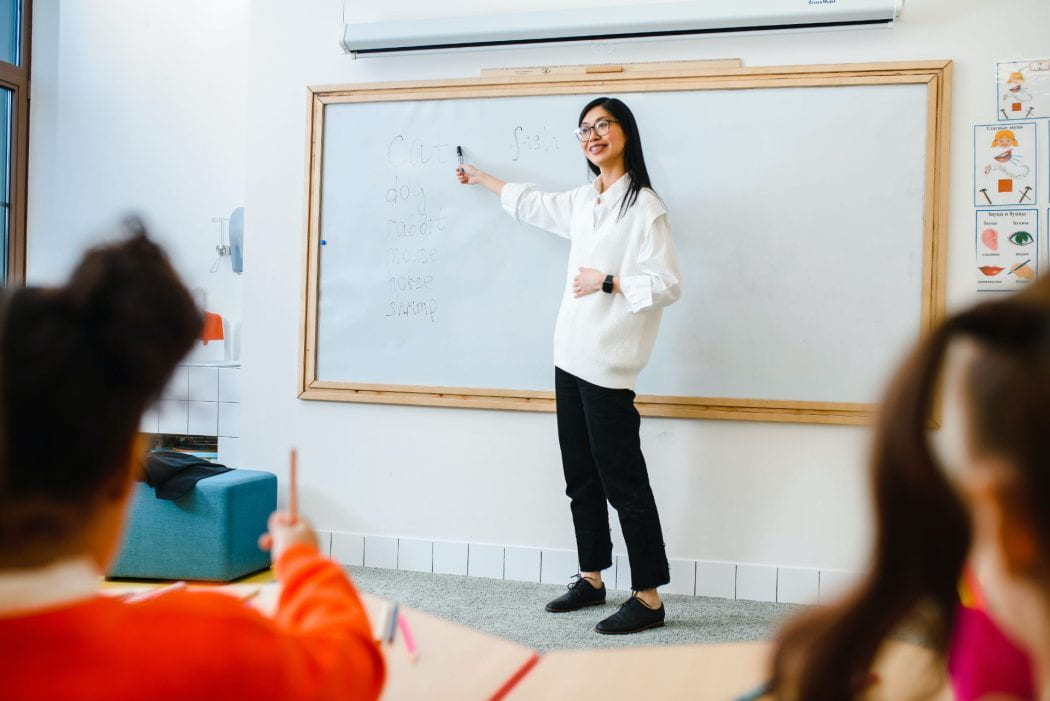
Alumni Series: an Interview with Liu Yiming
Felicia Lee
Liu Yiming completed his PhD in Applied Linguistics at the School of Linguistics and Languages, University of Melbourne, in 2022 under the supervision of A/Prof Neomy Storch and Dr Janne Morton. Yiming currently teaches English as a second language at a high school back in his hometown in China.
Felicia interviewed Yiming about his teaching career after attaining his degree, and how he applied the soft skills that he had developed throughout the course of his PhD journey to his job.
***
Could you tell us about your PhD project?
I was investigating written corrective feedback in a second language writing classroom from the perspective of Sociocultural Theory and Activity Theory. I did my Master of Applied Linguistics at the University of Melbourne so I’m familiar with the school system and my supervisor, A/Prog Neomy Storch.
The project was mainly about the decision-making process of teachers and students when they were providing and responding to written corrective feedback respectively. To investigate that, I interviewed teachers and students from a training centre. I also analysed some of the actual corrective feedback on the essays that the teachers had written.
You’re currently teaching at a high school in China. Was there a reason why you chose to teach in a high school instead of remaining in academia or teaching in tertiary institutions?
That’s a really good question. I feel that there are two factors that have influenced my decision, one being a more ideological factor and the other a more pragmatic one.
Doing academic research is great and may be intellectually stimulating, but I think my preference lies in making some tangible contributions to the field of second language acquisition in the school setting. There may be many pedagogical implications that may arise from academic research, but honestly, I gain satisfaction from doing the groundwork at schools.
Also, the pedagogical strategies that we apply in the classrooms are very much influenced by many other social factors, like language and educational policies, and cultural and other contextual factors, and these factors may not always be reflected in academic research in the field. I think these are more directly observable on the ground, and I enjoy working on the ground in the classrooms more. And who knows, gaining more experience directly from the job itself may inspire me to take on future research studies in the area!
On the pragmatic side, teaching as a career provides me with a stable stream of income, I guess? Being in academia may afford me more freedom comparatively, but since my family has just expanded with a baby, I think stability is important right now.
Bread and butter issues are always important! But with that said, would you say that you were able to apply some of the knowledge or skillsets that you’ve acquired when you were doing your PhD to your current job?
To be honest, at this point, I don’t think the findings from my PhD project have had a direct impact on the work I’m doing because as a new teacher at the school, I don’t have that much marking to do (though that will increase gradually). And being a new teacher, most of my energy is put into surviving the job every day, just to get myself accustomed to the routine at school. Also, because the context of my PhD project was at a training centre, which has a much smaller class size compared to mainstream schools, I don’t see myself being able to apply the technical aspects of my project right now to my work.
Given the contextual differences, I tend to view my findings as a minor contribution to the research field of second language writing, not to my own teaching. I could collect data again from this new context and do some research again, if I have enough time in the future, and those new findings may be more relevant.

However, with that said, maybe one day I would be able to apply the work in my doctoral studies to the daily work – after I have finally familiarized myself with the context. For example, I might try to adopt different feedback approaches for students on different levels and use AI (e.g., ChatGPT) to help me with the immense amount of work.
Well, despite the fact that your project may not be directly related to the context of your work, I’m sure there were many other skills that you have acquired from your PhD journey that helped you to handle the demands of your job right now.
Definitely! I think the main things I’ve learnt from the experience are time management and how to think about practical issues using possible theoretical frameworks.
We all know how doing a PhD takes up a large amount of time so learning how to manage my time was one big thing that I got out from the experience. For instance, I would spend a few hours just to focus on tasks that are more cognitively demanding, so applying this to my teaching right now, I also tend to use maybe two hours of my time daily to prepare for my lessons. As such, I feel that I am more efficient compared to the other teachers. Another skill that I’ve learnt is to think about pedagogical issues and/or strategies in a more systematic and theoretical way. Because my PhD project utilises many educational psychology theories, I feel that these theories help me to gain different perspectives in designing classroom activities that help students to learn more effectively. I feel that armed with such training, I have more autonomy to decide what could be done in the classroom as compared to just going with the flow.
I did find that having gone through research training as a PhD student helps me to be more confident, or assertive, with the pedagogical strategy used in the classroom. Two things guide my teaching – the theories (and research findings) I have learnt before and the practical situations in real classrooms.
All in all, though my PhD project was not directly applicable to the context of my teaching, I feel that the other skills that I’ve developed throughout the course have helped me to become a more effective teacher.
That’s a very important takeaway for doctorate students who may be looking to seek employment outside of academia! I guess we have developed more applicable skillsets than we think. Thank you for speaking with me, Yiming!
Thank you, Felicia.